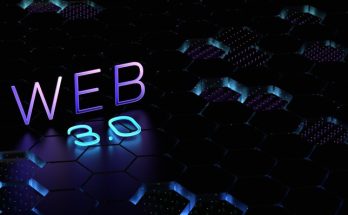Freedom of financial privacy was promised with cryptocurrencies yet most blockchains make all transaction details available to the world. How could it be good to demonstrate that you have sufficient money to make a purchase without mentioning the precise amount? Zero-knowledge is the ingenious new cryptographic technology that operates behind privacy-focused blockchain applications that makes such an impossible task possible.
Zero-knowledge proofs are one of the most counterintuitive but useful ideas in cryptography. They address one of the fundamental issues, which is: how do you validate information that you do not see? This technology presents a very viable alternative in the protection of sensitive data without compromising trust since on average data breaches loses businesses an average of 4.2 million dollars per breach.
What Are Zero-Knowledge Proofs and What Are They?
Zero-knowledge proofs (in short ZKPs) are mathematical tools that enable one party (the prover) to convince the other party (the verifier) that he/she knows certain information without disclosing the information. Imagine if you could prove to someone you had the correct password to an account, without typing the password.
The idea was developed by MIT scientists in 1985 but it has just come to practice. ZKPs are based on three fundamental principles ensuring that they are secure and useful.
Three Pillars of Zero-Knowledge Proof Technology
Three critical properties must be satisfied, by any correct zero-knowledge proof:
Completeness
Completeness states that whenever a statement is true, then the honest prover can always convince the honest verifier about this property. This implies that the system functions properly in case all people obey the rules.
Soundness
Soundness ensures that dishonest provers cannot induce verifiers to believe lies, with vanishingly small probability. This property prevents the success of fraudulent claims.
Zero-Knowledge
Zero-Knowledge ensures that verifiers get information on nothing more than that the statement is true. The verification process does not leak any extra information.
Here is an instance that you might encounter in real life: You would like to convince a color-blind companion that two balls are of different colors without giving up which one is red or green. You could make your friend put both balls behind his back and then choose any of the balls at random and display it to you, then through persuasive inference, tell the person whether he has or has not changed the balls. When this is done severally the balls can be proved to be different without knowing the kind of colors the balls really are.
What are zk-SNARKs? The Minimalist Privacy Protocol
Zero-Knowledge Succinct Non-Interactive Argument of Knowledge (zk-SNARKs) is the most well-established type of zero-knowledge proofs at present. Such cryptographic protocols generate short verifiable statements that can be checked in a short time without exchanged messages between the prover and the verifier.
The succinct nature is especially attractive in blockchain use cases of zk-SNARKs. Regardless of complexity of the computation being verified, sizes of proofs are small. Such a high performance justifies why such significant projects as Zcash and zkSync are based on zk-SNARK technology.
Nonetheless, zk-SNARKs need a trusted setup during which initial parameters are constructed. This arrangement may be compromised and it may affect the security of the whole system. This disadvantage has resulted in alternative methods.
ZK-STARKs vs. zK-SNARKS: Which Privacy Tool to Pick
Zk-STARKs (Zero-Knowledge Scalable Transparent Argument of Knowledge) have attractive properties in particular applications even though zk-SNARKs currently have overwhelming practical deployments.
Zk-STARKs also avoid the trusted setup, and thus are more secure in practice. They also have the post-quantum security feature, which makes them resistant to attacks by hypothetical future quantum computers. Such projects as Starknet utilise the zk-STARK technology in complex and massive proofs.
The trade-off is proof size and verification speed. zk-STARKs produce larger proofs than zk-SNARKs but scale better with the complexity of the computation. zek-SNARKs are still the superior options when it comes to smart contracts that need verification on a small and inexpensive scale of on-chain verification. Zk-STARKs offer superior scalability to applications dealing with enormous computations.
Industry disruptors in 2025 Real-World Applications Transforming Industries in 2025
Zero-knowledge proofs have long gone past the theoretical realms to be applied in various industries.
Financial Services And Cryptocurrency
The most obvious application of ZKPs is privacy-centered cryptocurrencies. zcash employs zk-SNARKs technology to power truly anonymous transactions that do not compromise the integrity of a block chain. Without sender, receiver, or amount, users can demonstrate the validity of transactions.
ZKPs are also used in traditional financial institutions. ING employs zero-knowledge proofs to allow the customers to demonstrate that they have acceptable ranges of incomes without revealing salaries figures. This solution would allow verification of mortgage and still maintain financial privacy.
Authenticating and Identity verification
Zero-knowledge proofs are changing the way that digital identity is deployed by allowing users to prove credentials without revealing any underlying data. Users can instead cryptographically prove possession of valid credentials without relaying any password or personal information…. Last month, Google released its libraries to maximize age verification checks as open source, so platforms can verify users are old enough without collecting birth dates or other personal data. The development is compatible with EU age assurance and user privacy.
Healthcare and Medical Records
With ZKPs, healthcare organizations support safe medical research without breaching patient privacy. Researchers are able to ascertain study of patients who fit certain criteria without having to look in a patient AL record.
The app is especially useful in clinical trials and epidemiological research in which patient privacy is sacrosanct yet the validity of data is compulsory.
Supply chain and enterprise applications
Zero-knowledge proofs are used so that companies can screen the authenticity of products and compliance with the regulatory requirements without disclosing the trade secrets. Quality standards and trade secrets are addressed since participants of the supply chains can assure that goods are of the desired quality.
The added security layer with the Smart contracts deployed with ZKP technology can ensure that the data in the contracts is not stolen or retrieved by unauthorized people, whereas to some extent being transparent.
Present Trends in the Market and Industry
The zero-knowledge proof ecosystem has gone through an all-time high growth, with a combined value of projects serving around 21 billion by the beginning of 2024. This huge investment indicates an increased understanding that ZKPs can address key privacy and scalability issues.
The key trend is hardware acceleration technology that enhances the performance of the ZKPs. As the creation of zero-knowledge proofs takes high computation, specialized hardware assists the developer in creating more efficient and expandable solutions.
Another critical area of development is the interoperability. ZKPs allow the secure intercommunication across blockchain networks without leaking sensitive information about transactions, thus leading to a chance of cross-chain privacy layers.
Obstacles to Zero-Knowledge Proof Use
Although capable of impressive feats, zero-knowledge proofs still have a number of implementation issues.
The first bottleneck is the computational intensity. Interactive ZKPs involve communications between provers and verifiers in several rounds, whereas non-interactive follow-ups needed to be computationally resource-intensive. In some cases, this renders ZKPs unfit on slow or mobile devices.
ZKPs are probabilistic, so they are not guaranteed with mathematical certainty. Although the likelihood of the successful fraud can be reduced to an arbitrarily low number by repeating the contacts, it cannot be reduced to zero.
The other issue is the user experience. The existing ZKP systems are in most cases technically demanding both to implement and to apply successfully. It is also essential to develop more user friendly interfaces to achieve mass adoption.
Future Prospect: Technology in Privacy
The technology of zero-knowledge proofs is still developing, and new zk-SNARKs and zk-STARKs bring hope of speeding up transaction and achieving greater scalability. This advancement is pushing ZKPs towards accessibility and usability.
The most exciting area is cross-chain privacy layers. Such systems will allow warranty-free transactions in various blockchain networks, making the application of blockchain vastly wider.
Applications such as privacy protecting AI and machine learning should have an enormous potential. ZKPs allow ensuring that the correct AI models are correct without revealing the internal logic or training information that they are based on, so they enable secure multi-party collaboration in industries or departments that require discretion, including healthcare and financial services.
It seems unavoidable that the ZKP technology will soon enter the mainstream due to the increasing interest in privacy and regulatory needs. Organizations of varied industry have realized that safeguarding sensitive information whilst ensuring transparency and trust is a key business requirement.
An effective solution to this problem is zero-knowledge proofs. They make verification possible without disclosure, and trust without openness and security without compromise. As the technology gets more sophisticated and accessible, we will probably see how this will change the way we perceive privacy, security and verifications in our digital era.
Its zero-knowledge proofs may be at the heart of a privacy revolution that is only now getting underway. Whether you know it or not, use it or not, ZKPs form the cryptographic underpinning of a more secure and private digital world: financial transactions, healthcare records and processes, supply chains, digital identity, and more.



